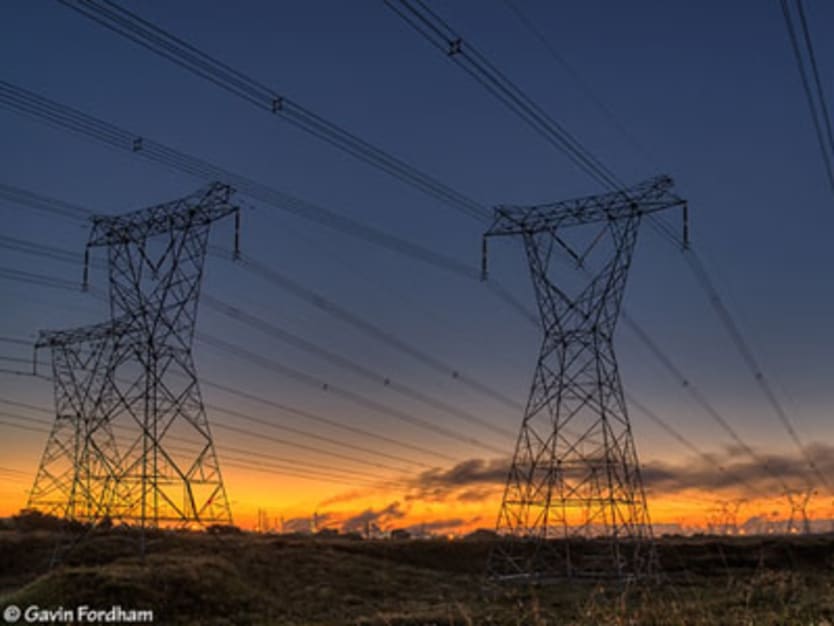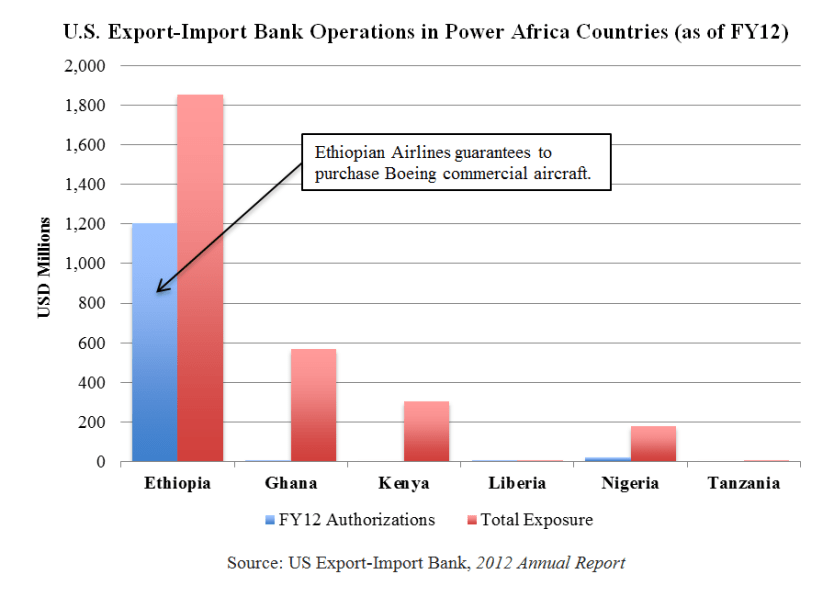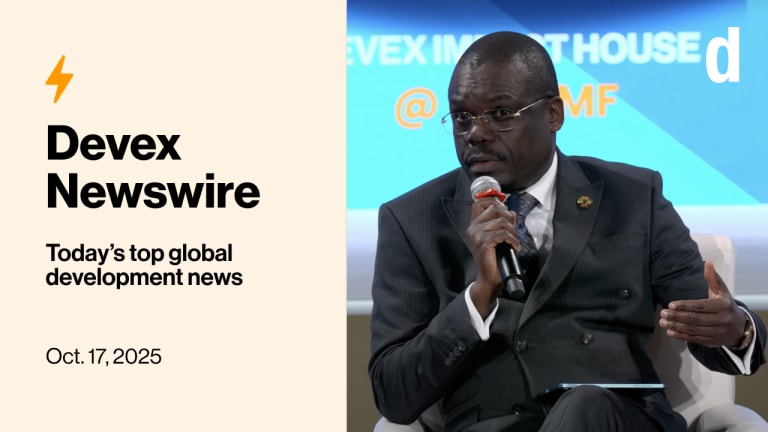
EDITOR’S NOTE: The U.S. Export-Import Bank is supposed to finance up to $5 billion of the $7 billion Power Africa initiative. Center for Global Development senior fellow Ben Leo gives 3 reasons why this financing structure may not work out as planned.
Someone from an advocacy organization asked the other day why we at the Center for Global Development are so focused on unleashing OPIC and not instead concentrating on the U.S. Export-Import Bank as the private sector lever for President Barack Obama’s Power Africa initiative. After all, the Ex-Im Bank accounts for the bulk of the funding in the announcement ($5 billion as opposed to OPIC’s $1.5 billion). It’s a sensible question. That is, until you unpack its business model and look at what the Ex-Im Bank has actually done in the African power sector (hint — very little).
To help clarify, here are three reasons why the Ex-Im Bank cannot be the financing cornerstone of the White House’s most ambitious new development initiative to date.
Ex-Im doesn’t do development projects. The Ex-Im Bank provides loans and guarantees to support the export of US goods and services. Full stop. As such, it can only finance the procurement pieces of power projects (like GE turbines). Someone else must provide risk capital through loans, guarantees, and/or equity. This means that the Ex-Im Bank cannot help identify and support US investors that will develop generation or distribution projects. That’s the domain of OPIC and the multilateral development banks, as well as the MCC to some extent (a role I hope will grow in the coming years).
Ex-Im has only financed 3 African electricity deals since 2000. By my count, the Ex-Im Bank has done a grand total of three African power transactions totaling $1.2 billion in twelve years. Of this modest amount, roughly $800 million was a single Eskom engineering services deal in South Africa. The others were two smaller projects in Ghana. That’s it. Theoretically, the Ex-Im Bank could meet its $5 billion Power Africa commitment by quadrupling what it’s done over the last twelve years. But, that’ll be a tough magic act unless it pulls some massive deals out of its hat. Especially when the Ex-Im Bank hasn’t done a lot of business of any kind in the target countries (see graph further below). Of its $2.9 billion portfolio, nearly one-half are two Ethiopian Airlines guarantees to purchase Boeing Dreamliners.
Ex-Im cannot provide long-term financing in many African markets. Energy infrastructure projects require patient capital. They often have very large capital expenditure requirements and take years for revenues to come online. That’s why long-term financing is so critical. However, the Ex-Im Bank cannot offer financing beyond seven year terms in nearly half of Sub-Saharan African markets, largely because of credit risks. This includes two of the existing Power Africa countries (Ethiopia and Liberia). In fact, it can’t do anything over 12 months in Liberia. As the Obama Administration moves to execution — and expansion to other African nations over time — this loan term constraint will take the Ex-Im Bank completely out of the game in many places. In contrast, OPIC can provide financing terms for up to 15 years — which is a much better match for infrastructure projects.
None of this means that the Ex-Im Bank should not support Obama’s Power Africa vision. It definitely should and I look forward to seeing big announcements in the coming years. However, we need to stay laser-focused on the U.S. development finance tools that will play a more catalytic role in unlocking private investment, developing new projects, and helping to transform African economies. By that count, OPIC, the multilateral development banks, and the MCC must command center stage.

Edited for style and republished with permission from the Center for Global Development. Read the original article.








